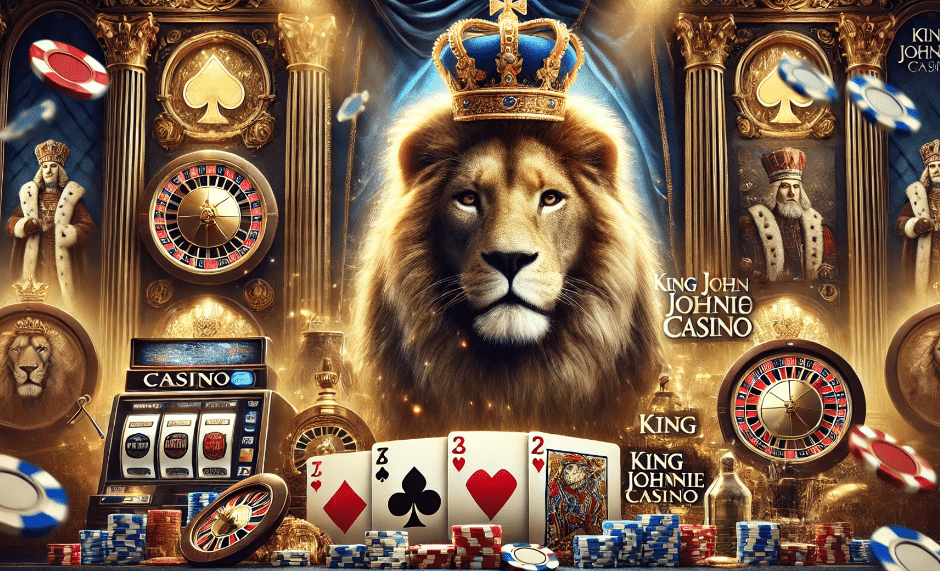In the realm of online gambling, the concept of luck often takes center stage. Players chase wins, driven by the belief that luck is on their side. But how does gambling truly influence a player’s perception of luck? The answer lies in the psychological mechanisms that online casinos, employ to create immersive and engaging experiences. By understanding these psychological triggers, players can become more aware of how their perception of luck is shaped, which, in turn, may help them make more informed decisions.
The Concept of Luck in Gambling
Luck is an abstract concept that humans have been trying to understand for centuries. In gambling, luck is often seen as a mystical force that determines success or failure. The belief in “lucky streaks” or “hot hands” is a prime example of how people perceive randomness. In reality, gambling outcomes are determined by randomness, but the perception of control over these outcomes is a well-documented cognitive bias known as the illusion of control.
When players spin the reels on a slot machine or bet on a roulette wheel, they are often influenced by cognitive distortions. This perception of luck is not accidental. Casinos use game design, sound effects, and visual cues to reinforce the idea that players have some level of control or influence over the outcome. This leads to a cycle of emotional highs and lows, with each “near win” activating the brain’s reward system.
The Role of Reinforcement in Perception of Luck
One of the most powerful psychological principles at play in gambling is variable ratio reinforcement. Unlike fixed rewards, variable rewards are unpredictable. This unpredictability is what makes gambling so addictive. Players are more likely to keep spinning, betting, or playing because they never know when the next win might come.
Online casinos like King Johnnie Casino capitalize on this effect. By offering unpredictable wins, they keep players engaged for longer periods. Every spin, roll, or draw is accompanied by stimulating sounds, flashing lights, and animations that enhance the sense of anticipation. Even when players lose, the system is designed to make them feel “close” to winning, which further fuels their belief in luck.

Near Misses and Their Impact
A near miss occurs when a player just barely misses out on a win. For example, landing two jackpot symbols on a slot machine but missing the third by a fraction is classified as a near miss. Psychologically, near misses are perceived as “almost wins,” and they trigger the brain’s reward system in much the same way as a win would. This phenomenon creates a false sense of control and makes players believe they are “due” for a win.
Online casinos leverage near misses as part of their design strategy. For example, slot machines are programmed to generate near misses to maintain player engagement. The player is left thinking that luck is “just around the corner,” encouraging them to continue playing.
The Illusion of Control
Another critical aspect of the psychology of gambling is the illusion of control. This cognitive bias leads people to believe they have more control over random events than they actually do. Players might believe that their actions, such as pulling a lever in a certain way or betting at a specific time, can influence the outcome of a game.
Online casinos fuel this illusion by providing interactive elements, such as “pressing the spin button” or “choosing lucky numbers” in games like roulette or lottery-style games. While these actions have no impact on the outcome, they give players a sense of involvement and agency. This sense of control enhances the belief in luck and keeps players coming back.
Superstitions and Rituals
Superstitions play a large role in how players perceive luck. From wearing “lucky socks” to betting on specific numbers, gamblers often believe that certain rituals or objects bring them good fortune. Online casinos recognize this tendency and incorporate elements that allow players to personalize their experience. For instance, King Johnnie Casino may allow players to select “lucky numbers” in certain games, further reinforcing the belief that they have control over the outcome.
The Role of Dopamine in Gambling
Dopamine is a neurotransmitter responsible for feelings of pleasure and reward. When players experience a win (or a near miss), their brains release dopamine, creating a rush of excitement. This dopamine release reinforces the behavior, making players want to experience the feeling again.
What makes online casinos so effective at engaging players is their ability to simulate a constant state of anticipation. From frequent mini-rewards (like small wins) to larger, more elusive jackpots, every moment spent playing is designed to trigger the brain’s reward system. The unpredictability of wins and the sense of “almost winning” activate dopamine surges, which can lead to compulsive gambling behavior.
The Role of Online Casinos in Shaping Perception of Luck
Online casinos are well aware of the psychological principles at play. They use a variety of techniques to keep players engaged, including:
- Gamification: Many online casinos introduce leaderboards, daily challenges, and missions to create a sense of progress and achievement.
- Bonuses and Free Spins: By offering random bonuses and free spins, casinos create a sense of unpredictability that keeps players coming back.
- Time-Limited Promotions: Casinos use countdown timers and “limited-time” promotions to create a sense of urgency, pushing players to act quickly in the hope of getting lucky.
All of these techniques serve to strengthen the player’s belief in luck, even when the results are based on randomness. By shaping this perception, casinos create an environment where players feel compelled to continue playing.
How to Stay in Control While Playing Online Games
While understanding the psychology behind gambling can be beneficial, it’s equally important for players to recognize when they are being influenced. Here are some strategies to maintain control:
- Set a Budget: Establish a strict gambling budget and stick to it.
- Recognize Near Misses: Understand that near misses are deliberately designed to keep you playing.
- Avoid Superstitions: Luck is random, and rituals do not influence outcomes.
- Take Breaks: Stepping away from a game can break the dopamine-fueled cycle.
- Use Self-Exclusion Tools: Many online casinos offer tools that allow players to self-exclude for a period of time.
By being aware of the psychological triggers at play, gamblers can make more rational decisions and avoid falling into the trap of believing they can “win back losses” or that a lucky streak is just around the corner.
The psychology of gambling is a complex interplay of cognitive biases, emotional triggers, and sophisticated design strategies employed by online casinos like King Johnnie Casino. From the illusion of control to variable reinforcement schedules and near misses, players are constantly exposed to psychological triggers that shape their perception of luck.
While luck may seem like a mystical force, it is important to recognize the reality: gambling outcomes are based on randomness. By understanding the psychological principles at play, players can make informed decisions, stay in control of their behavior, and enjoy a more responsible gambling experience.
